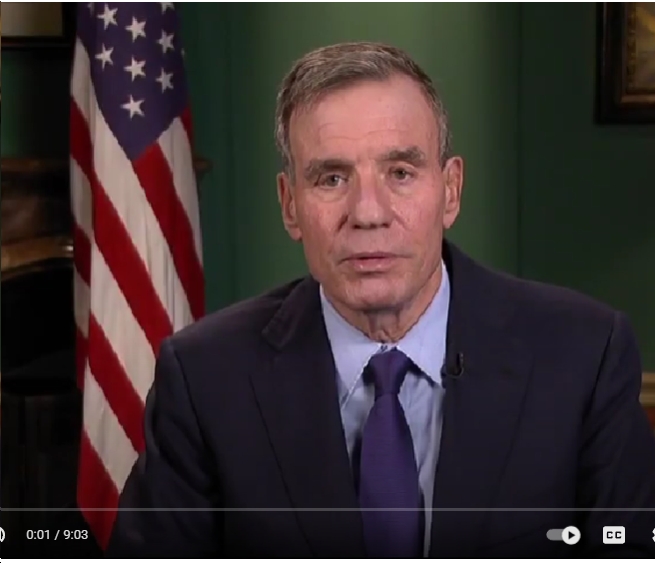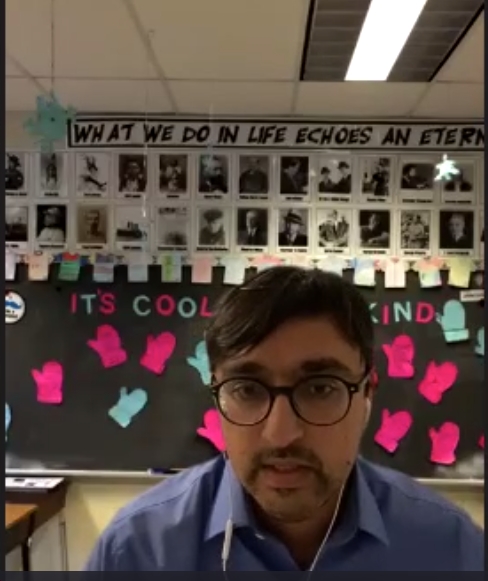 This Tuesday evening, Secretary of Education Atif Qarni and Virginia Asian Advisory Board Chair May Nivar will convene a panel of experts for a discussion on how racism and anti-blackness manifest in Asian American communities. One of the panelists, VA State Senator Ghazala Hashmi (D-SD10), described the forum as follows:
This Tuesday evening, Secretary of Education Atif Qarni and Virginia Asian Advisory Board Chair May Nivar will convene a panel of experts for a discussion on how racism and anti-blackness manifest in Asian American communities. One of the panelists, VA State Senator Ghazala Hashmi (D-SD10), described the forum as follows:
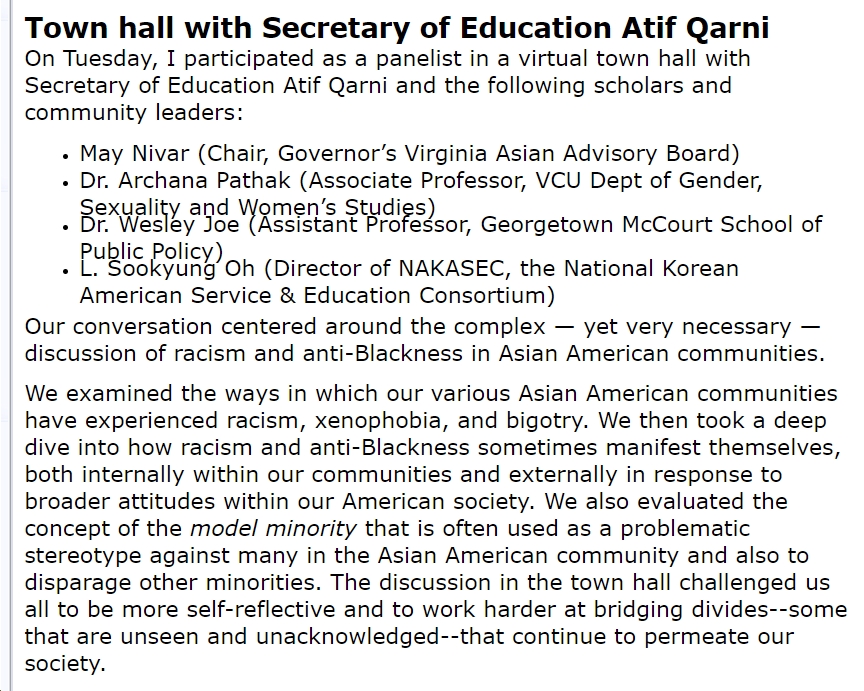
In sum, the conversation “centered around the complex — yet very necessary — discussion of racism and anti-Blackness in Asian American communities,” examining “the ways in which our various Asian American communities have experienced racism, xenophobia, and bigotry” and also looking at “how racism and anti-Blackness sometimes manifest themselves, both internally within our communities and externally in response to broader attitudes within our American society.” The panel also discussed “the concept of the model minority that is often used as a problematic stereotype against many in the Asian American community and also to disparage other minorities” and stressed the importance of “work[ing] harder at bridging divides–some that are unseen and unacknowledged–that continue to permeate our society.”
To watch the forum and to read a transcript, click here. A few highlights include:
- Secretary Qarni stressed that, while the Northam administration has “taken a lot of bold steps to address systemic inequities” in education and other areas, he still isn’t satisfied, as “the biggest issue left in education for us to tackle is school segregation.” Currently, sad to say, “the system is not designed for all to succeed,” and that has to change, in Secretary Qarni’s view.
- According to Secretary Qarni, who is Pakistani-American: “In the various Asian communities, there’s a lot of pain and discrimination that we have faced and that is felt across generations. So as we reflect on our own experiences, we must also reflect on our own biases and acknowledge that discrimination for other marginalized groups in America also exists and they’re facing that as well. Without acknowledging the pain of others, we will not be able to effectively address the root causes of racism, xenophobia, discrimination and oppression. Resistance to self reflection or denial of the existence of bias is really harmful to our society, particularly those who are disproportionately impacted, such as Black and Latinx communities and students from lower socioeconomic backgrounds. If we want to see real change and narrow the achievement gap between students from different socioeconomic and racial backgrounds in education school and neighborhood integration are key. As Asian Americans, I hope we can join in this important effort to create a more fair and equitable education system. The status quo is not working for all, and we must continue to work on reforming the system until it does.”
- Towards the end of the forum, Dr. Wesley Joe had some powerful comments, in response to criticism that this type of conversation in and of itself – or efforts to change the way in which admissions to “Governor’s Schools” such as “TJ” are conducted – constitutes an attack on Asian Americans: “I think we really do need to be clear about what is and is not an attack on Asian Americans. I don’t know whether to be exasperated or how to react to the idea that desegregating the Governor’s Schools is somehow an attack on Asian Americans. If you want to know what an attack on Asian Americans is I can take you back to Trump country and show you what it’s like to be attacked as an Asian American. Or you could have sat in the car with my wife shortly after 911. She’s a darker skinned Indian woman who sometimes likes to wear a scarf over her head, so it looks like a hijab. She almost got run off the road one time in the west end of Alexandria by some yahoo in a pickup truck who thought that she was probably a terrorist and called her some very, very foul names at an intersection. That is an attack on Asian Americans. Wanting to desegregate a school so that kids have a greater opportunity to develop empathy with people from other walks of life that is not an attack on Asian Americans. I’m sorry. That’s just ridiculous.”
- On the concept of Asian Americans constituting a “model minority,” Sen. Hashmi commented: “It is a pernicious myth and it serves very effectively to maintain the order of this country. So if we predicate where racial biases come in – bigotry and acts of oppression against certain groups – they come from a model that holds up white supremacy as the ideal, that to buy into this culture, one has to act white, be white and participate in the majority culture to the largest extent possible. And that is a dangerous idea to subscribe to. It serves to pit minority communities one against the other. And it also serves to become a target for ourselves, that we turn it against ourselves. And we have to be very, very conscious of the ways in which Asian Americans in particular are made into comedic figures for example, that it is okay to mock and laugh at Asian Americans, because they are this supposing model minority but they also are vulnerable. So we see it in very simple examples such as the mockery that takes place around Asian accents; it’s somehow okay to mock Asian accents, but other European accents, for example, are held in high esteem. So a Scottish accent is not mocked, but a Chinese accent would be mocked. And so that’s part of the perniciousness that I think permeates any way that we look at the idea of being a minority that is going to be held up as an example, and yet at the same time face discrimination, face bigotry.”
- On the question of meritocracy, Archana Pathak said: “Meritocracy presumes that we’re all addressing things from an interpersonal lens. We’re all working very hard. My parents immigrated to the United States in 1970 I have no doubt and no question about the immense amount of work that they did to make their life successful and to build the absolutely amazing life that I have that my sister has and that my extended family has. So they worked incredibly hard. The thing is, they didn’t have a hook in the back of their shirt that was pulling them back every time they ran that sprint, that marathon to get to that end goal. And so I oftentimes use that analogy. So if we think of meritocracy is we’re all at the starting gate, we’re going to run this race to success, that’s great. Everybody’s running…we’re running hard, we’re doing everything we can…but some groups have this hook that just holds them back. So no matter how hard they’re running, they’re not actually moving forward. And that’s not because they’re not running hard. So I think this is one of the biggest struggles for Asian American communities and I see this in the South Asian community a lot – the idea that if we acknowledge that there’s a way in which we have been given some sort of advantage that negates the incredible hard work that we’ve done and it doesn’t the hard work we have done remains. It is meaningful. It is important and and we have struggled, as a community, and that I don’t think that anything can take that away from us. Nothing can erase that. But it is also true that somebody, a dominant structure like white supremacy, like dominant political systems, has decided that our struggle has greater value…”
- L. Sookyung Oh commented: “Fairfax County releases a youth survey every year. It’s a voluntary survey of eighth, 10th and 12th graders. And since I’ve started working at NAKASEC Virginia in 2017, it’s never failed to catch my attention that Asian American students report the highest or second-highest rates of being targeted with racist comments; they’re most likely to experience high levels of stress and consider attempting suicide…Asian American youth, they feel like they can’t escape stereotypes and expectations of who they’re supposed to be…The pressure can come from many places, and it may be very well intentioned, but the impact is negative. For example, some Asian American students who show any type of aptitude for math and science…their teachers are going to start pushing them to apply to TJ. And TJ, if you’re not familiar, is a Governor’s School. It’s a public school, but it’s kind of like a private school; it bases much of their admissions on a single test score. So for the ones who can afford it – and, you know, I’m not even going to address some of the comments that are in the chat about about TJ at this point…For folks who can afford it, there’s an abundance of private tutoring options that come at a cost. And it will give the students an advantage. So let’s stop talking about meritocracy here, ok? I‘m not even going to address that. So for others…especially for some of the lower income students that I work with, it means that they’re sacrificing all their free time to study for a test, either on their own or with their friends. And you know what’s so sad is that for many of them…is that they never stopped to think, do I actually want to go to TJ, since no one questions that that’s what an Asian American is supposed to want. And, you know, the sad thing is that the majority of kids who apply, they’re going to fail…For these young people, this has really long lasting damage to their mental and emotional health…I think it’s worth evaluating here why TJ is so damn important and why education is so important.”
- May Nivar commented: “As Asian Americans – I mentioned this and Secretary Qarni mentioned this earlier – you know, we’re not immune from racism, we acknowledge that. We are not immune from discrimination, bias, especially from the start of this pandemic. Then this summer, you add the Black Lives Matter and racial justice movement…It’s not enough to not be racist, rather we need to be anti racist. I mentioned earlier, a rising tide lifts all boats.”
- Secretary Qarni concluded emphatically: “One thing I want to emphasize, as we close out is that school segregation, neighborhood segregation is very real here in the commonwealth. We’re a great commonwealth, we have a lot of great things happening here. We are going through a COVID pandemic which everybody’s struggling with across the globe. But prior to the pandemic, I’m really proud of the successes of the Northam administration…we‘ve accomplished a lot to address in inequities in education the last three years. And we faced resistance in almost everything we were putting forward. But folks listened, they became allies, and we were able to accomplish a lot of great things. Addressing school segregation is going to be just like that. We’ve got one year left in the administration; we’re not stopping. Whether you like it or not, change is coming. I would really encourage everyone to reflect on their biases that they might have. We have a problem in the Commonwealth of Virginia. Researchers from Virginia Commonwealth University and Penn State have done a deep data dive into a school division. And they…clearly demonstrated in their findings that our schools are more segregated now than they have been in the last 20 years. Our gifted programs, our advanced academic programs across the state are fragmented and broken. So we’re going to fix that. You have a simple choice in front of you, is that you can be part of the progress, you can be an ally to uplift all marginalized groups; or you could be part of the resistance to maintain the status quo. The choice is very simple. But as far as we’re concerned, we welcome all the help. The change is coming; this train is not stopping and I want to be very, very clear about that.”

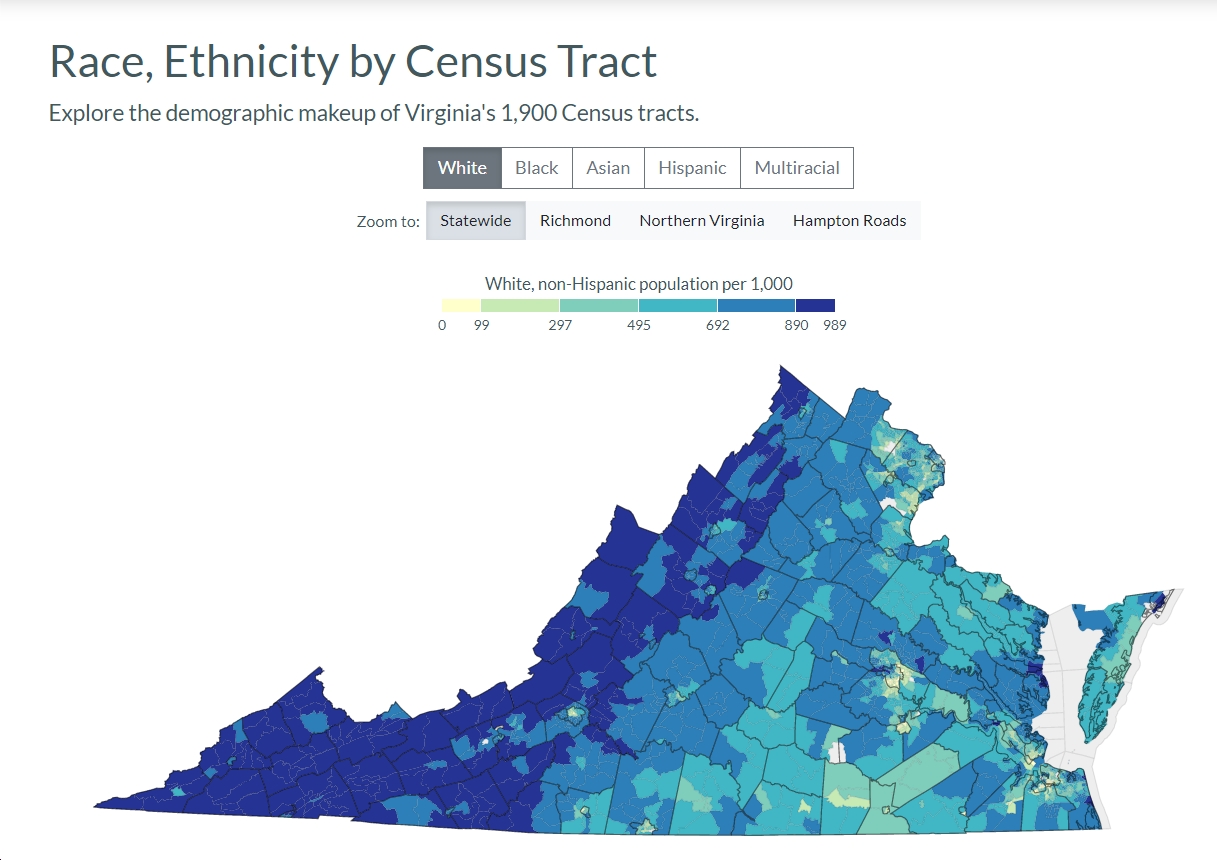
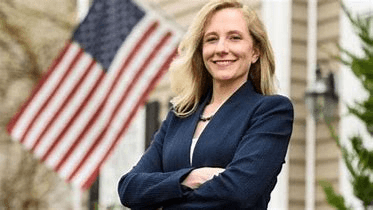
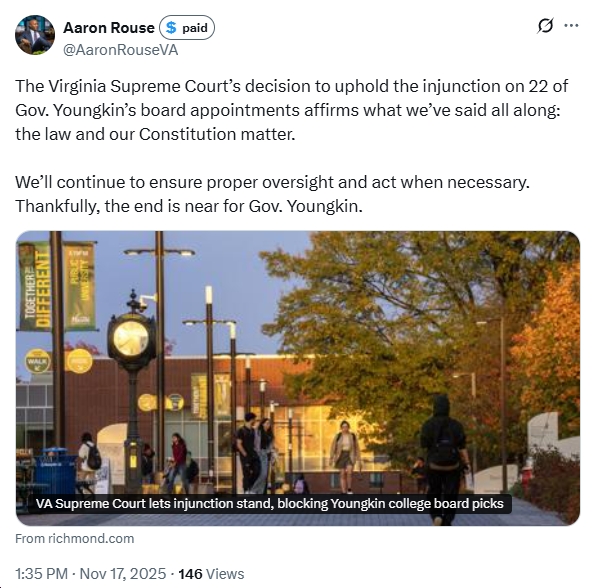
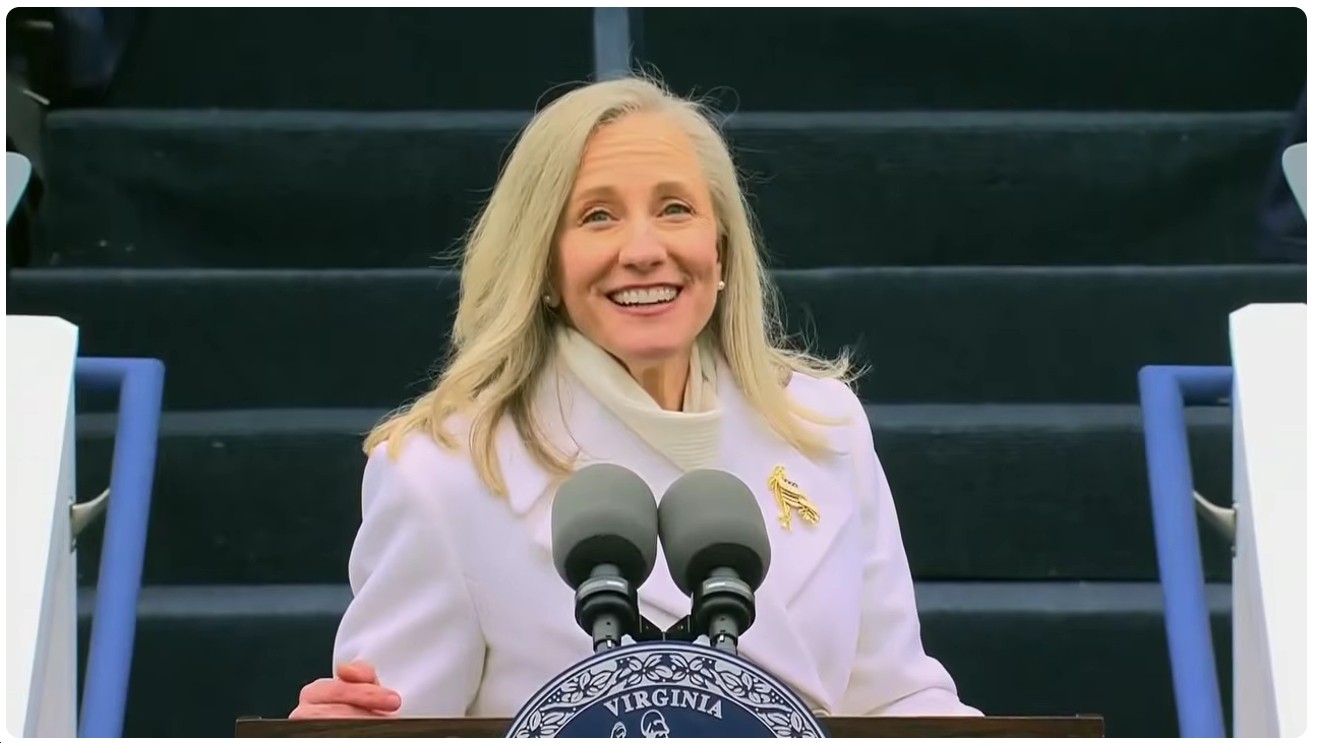
![Virginia NAACP: “This latest witch hunt [by the Trump administration] against [GMU] President Washington is a blatant attempt to intimidate those who champion diversity.”](https://bluevirginia.us/wp-content/uploads/2025/07/gmuwwashington.jpg)
